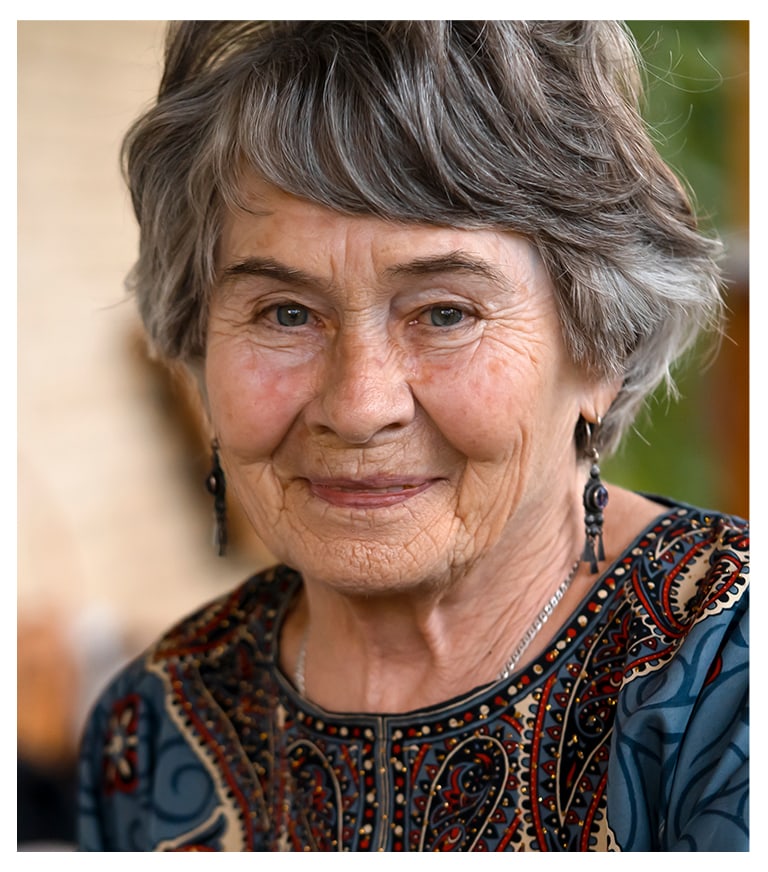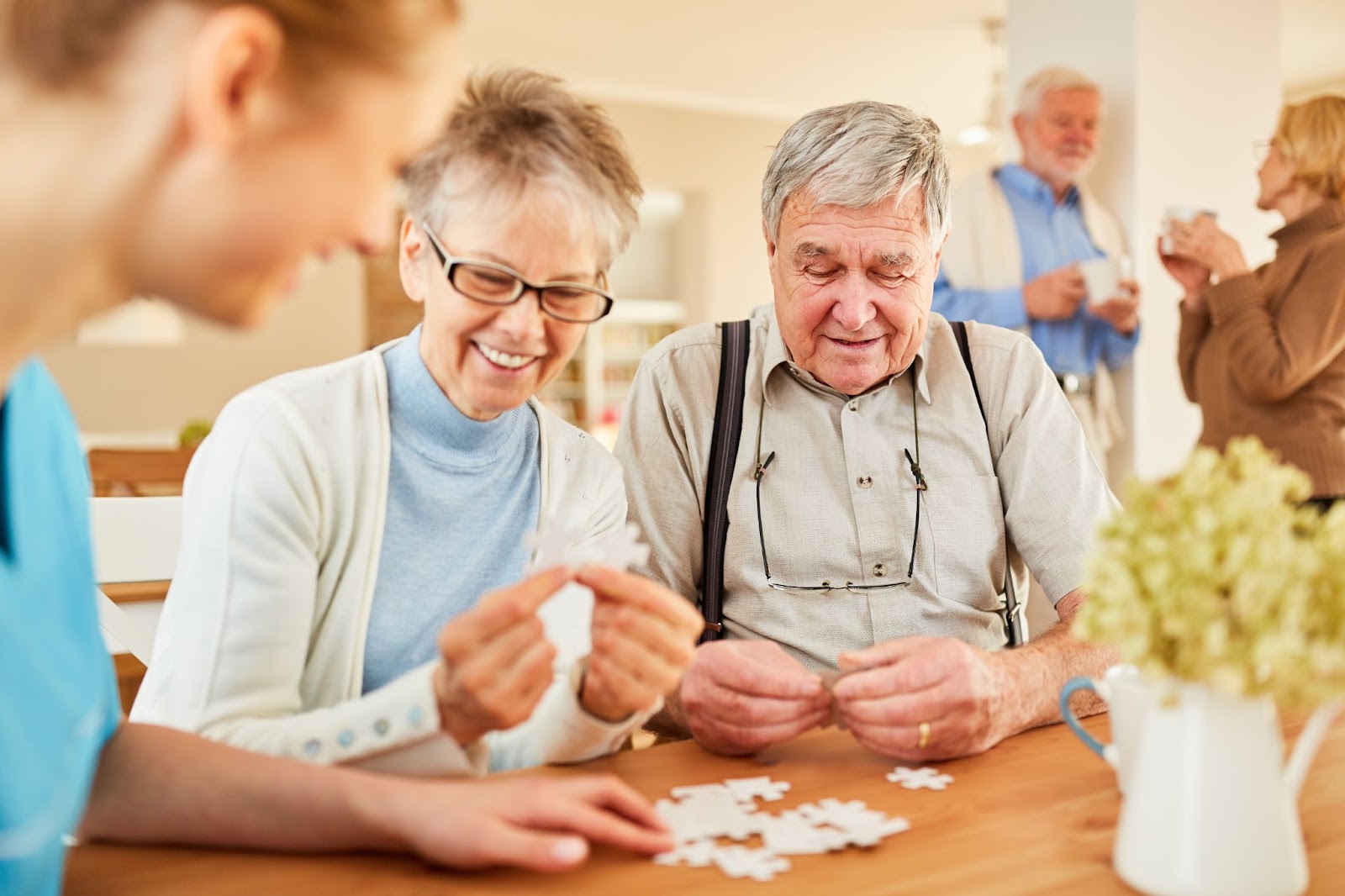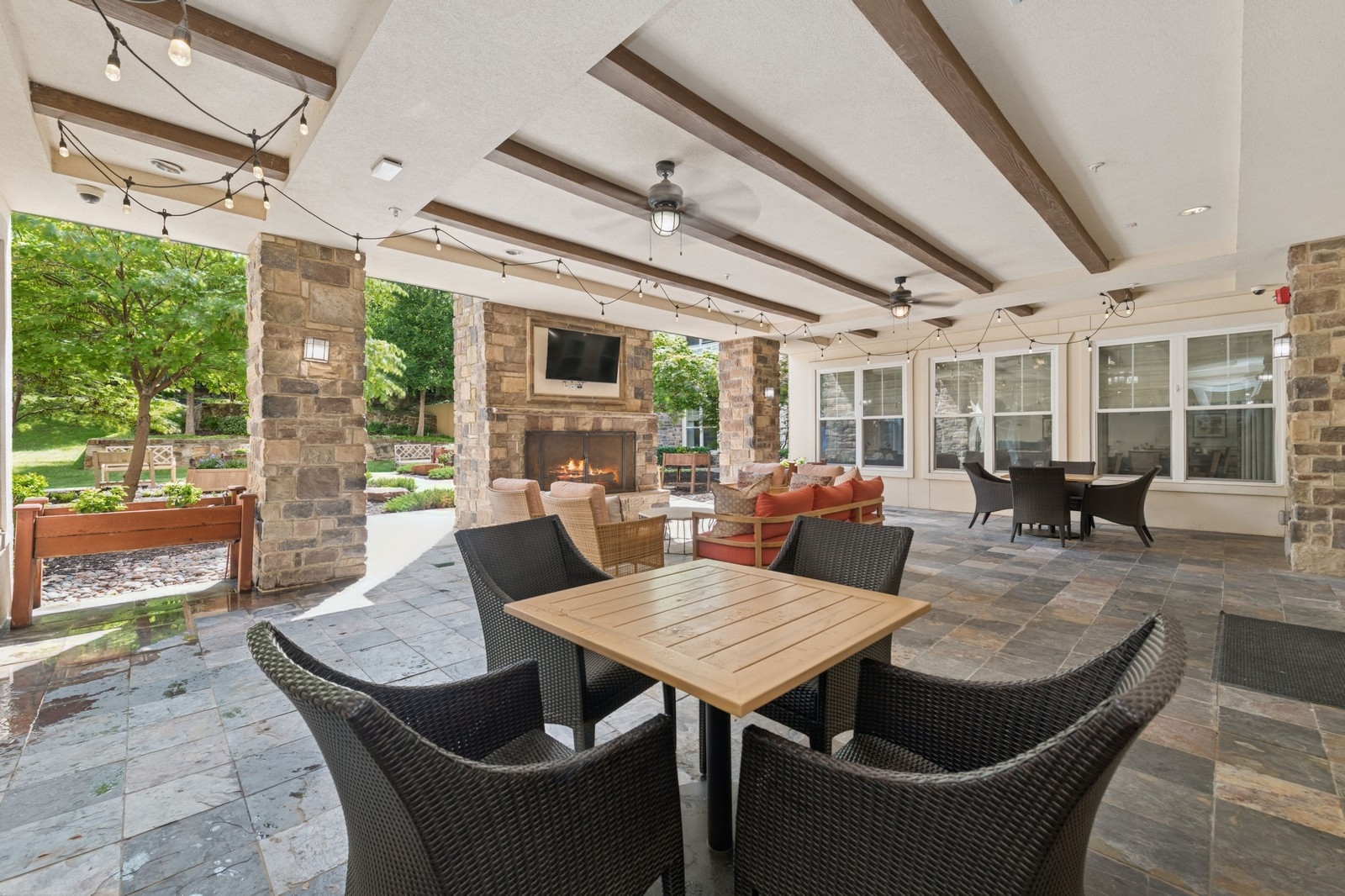Alzheimer’s disease is a condition that affects many older adults, causing cognitive decline severe enough to impact daily living. While an Alzheimer’s diagnosis can be overwhelming, engaging in meaningful activities can offer loved ones with Alzheimer’s a better quality of life.
Activities for older adults with Alzheimer’s can include:
- Physical activities
- Cognitive activities
- Social activities
Memory care programs in senior living can provide personalized experiences and activities to support loved ones based on their cognitive and physical abilities.
What Is Alzheimer’s Disease?
Alzheimer’s disease is the most common type of dementia. While Alzheimer’s disease is not a normal part of aging, age is a risk factor.
Alzheimer’s disease is a progressive neurological disorder that leads to memory loss, cognitive decline, and behavioral changes. As the disease advances, it affects an individual’s ability to perform everyday tasks and maintain independence. Understanding the nature of Alzheimer’s disease is crucial for caregivers and family members to provide the needed care and support for loved ones.
Alzheimer’s disease can affect cognitive abilities in the following ways:
- Memory loss: Difficulty remembering recent events, names, and places.
- Confusion: Disorientation in time and space, leading to wandering or getting lost.
- Communication challenges: Difficulty finding the right words or following conversations.
- Judgment and decision making: Trouble making simple decisions or solving problems.
The Importance of Engaging Activities
Engaging activities are vital for the well-being of older adults with Alzheimer’s disease. They provide mental stimulation, physical exercise, and social interaction, which are essential for maintaining quality of life:
- Mental stimulation: Activities that challenge the mind can help slow cognitive decline and improve memory.
- Physical health: Regular physical activity improves mobility, strength, and overall health.
- Emotional well-being: Engaging in enjoyable activities can reduce anxiety, depression, and agitation.
- Social connections: Social interactions foster a sense of belonging and reduce feelings of isolation.
Activities for Seniors with Alzheimer’s
Finding the right activities for older adults with Alzheimer’s disease involves considering their interests, abilities, and the stage of the disease. Here are some categories of activities to consider.
Physical activities can include:
- Walking: Gentle walks in the park or around the neighborhood.
- Gardening: Planting flowers or tending to a small garden.
- Chair exercises: Simple movements done while seated.
- Dancing: Listening to music and moving to the rhythm.
Cognitive activities can include:
- Puzzles: Jigsaw puzzles, word searches, and Sudoku.
- Reading: Short stories, poetry, or magazines.
- Arts and crafts: Drawing, painting, or knitting.
- Memory games: Matching games and flashcards.
Social activities can include:
- Group activities: Bingo, card games, and group exercise classes.
- Family gatherings: Spending time with loved ones and sharing memories.
- Pet therapy: Interacting with pets can provide comfort and joy.
- Music therapy: Listening to familiar songs and singing along.
Tips for Creating Activities for Older Adults with Alzheimer’s
Every individual with Alzheimer’s disease is unique, so it’s important to tailor activities to their specific needs and preferences. Here are some tips for creating activities for older adults with Alzheimer’s disease.
Understand Interests & Abilities
For personal preferences, consider what your loved one enjoys. Choose activities that match their physical abilities and adapt them to their current cognitive functioning.
Incorporate Familiar Activities & Routines
Establish a daily structure or routine to provide a sense of normalcy. A daily routine activity can include past hobbies broken down into simple tasks or manageable steps.
Adapt Activities as the Disease Progresses
Be prepared to modify activities as the disease progresses and needs change. Adapting an activity includes making sure it’s safe and appropriate for a loved one’s abilities. Patience and encouragement when adapting can help avoid frustration.
Resources for Finding Activities
Many resources are available to find suitable activities for older adults with Alzheimer’s disease. Some resources can include local and online resources:
- Local community centers: These can offer a variety of programs and activities.
- Alzheimer’s Associations: Provide support groups and activity suggestions.
- Libraries: Host events and provide access to books and puzzles.
- Brain games: Websites and apps offering cognitive exercises.
- Activity ideas: Blogs and forums where caregivers share tips and activities.
- Virtual classes: Online classes for arts, music, and exercise.
Meaningful, Engaging Opportunities for Loved Ones
Engaging activities are a cornerstone of care for older adults with Alzheimer’s disease and help maintain their quality of life and emotional well-being. By understanding their interests and tailoring activities to their abilities, you can create meaningful and enjoyable experiences for your loved ones. Remember to explore various resources and be open to trying new activities as their needs evolve.
If a loved one has Alzheimer’s disease, schedule a visit with Washington Pointe Las Colinas to learn about our memory care program, which offers specialized support and a range of activities designed for individuals with Alzheimer’s. Together, we can positively impact the lives of loved ones affected by this challenging condition.









